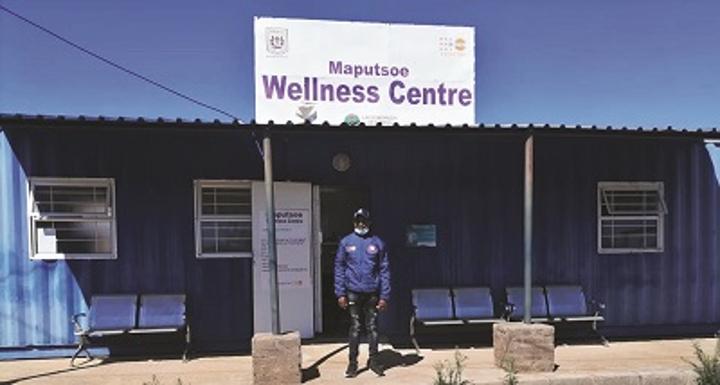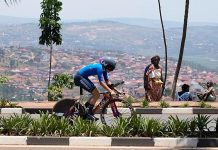Africa-Press – Lesotho. Maputsoe community enjoys the benefits of Integrated Health Services following regular visits of the United Nations Population Fund (UNFPA) and Lesotho Planned Parenthood Association
(LPPA) to the areas around the border. In an interview with Informative Newspaper, Maputsoe Wellness Centre Nurse Moipone Tlali
revealed that the clinic provides Sexual and Reproductive Health and Rights (SRHR) integrated services to the community along the border including adolescents and
vulnerable groups, though the primary target groups are key populations (Sex workers, Long distance Truck drivers, LGBTQI, Inmates, and Men having sex with
other men). Tlali indicated that the key population groups are given first priority at the clinic, clarifying that they skip the queue. She also stated that Sexually Transmitted Infections are very
common and major along the border. She held; “Integrated services have helped us a lot as health workers as the process itself has boosted our self-esteem.
Before integrated services were introduced, we attend to a patient today and a few days later, the same patient was seen on the queue. This was very worrisome but
with the introduction of integrated services, we are able to help a patient through coordinated services to ensure that they are fully attended to and that
makes them to take a long time to come back for health services. ” Maputsoe Bridge-based UNFPA and LPPA’s Along the borders Comprehensive HIV Prevention Program Peer
Educator Lekhooa Motšeare revealed that they provide information and referrals on SRHR and HIV/AIDS prevention services along Maputsoe border. He said as peer
educators, they also distribute condoms in hot spot areas which include garages, bars, local hotels and long distance truck parking areas. Motšeare further said
while doing their job, they come across challenges which include sex workers being violated by their clients or the community. “Sometimes the sex workers lack
sanitary supplies as they indicate that their charges have become non-provident for their day to day needs,” he indicated. While distributing condoms to truck drivers, Motšeare said he has realized that they show more preference
on female condoms and they take them for their partners. A Maputsoe based female sex worker who asked for anonymity indicated that the Integrated Health Services
which they obtain at Maputsoe Wellness Centre have relieved them a lot as they now occasionally visit health facilities, where they get a variety of services,
without discrimination. “I remember one incident 17 years ago when I started sex work. I was 15 years then and had contacted an STI (Sexually Transmitted Infection).
I went to the nearest government hospital and the older nurse who helped me called attention on me. She said I was a silly child having unprotected sex at my age and that I was
reaping what I had sown. As if it was not enough, the nurse further called other health workers to come and see my private part which had nearly got rotten and smelt badly as described by the nurse then.
” The sex worker, who asked for anonymity indicated that she was further referred to a counselor in a
different room for HIV testing and counselling and was told to come back to the same nurse afterwards. That was when she decided to leave the facility.
She did not go to the counselling room but went back to her rented house. The STI got worse as days passed, she could not move anymore and was bedridden.
It was then that her rental neighbor called her grandmother back home to come get her, the grandmother hastened to take her to a different health facility.
She indicated that from that incident, she made a promise to herself that she would rather die than set her foot in a government health facility again.
The challenges in her line of work include discrimination from the community members who know how she makes a living. Covid-19 also reduced the number of her clients and life has
gotten very hard as she has a family (two kids and a grandmother) to feed. “With the availability of integrated health services we are getting from Maputsoe
Wellness Centre, my colleagues and I are able to access various services under one consultation, hence we find convenience while also saving time and money
for transport to and from health facilities. We have a broad knowledge about family planning methods and also have condoms distributed to us. Moreover, the
nurses are young and sweet this side, no discrimination,” she said with a relief. On the other side of Leribe, Mahobong Ha Tota, one of the youth Nkhasi Konkosi (25) said a local
health facility provides Integrated Health Services as he recalled one time when he had developed a lump and had gone to the clinic. As HIV testing and counselling
went on, the nurse had mentioned Pre Exposure Prophylaxis (PrEP) which is a pill taken daily by people who do not have HIV but who are at substantial risk
of getting it, to prevent HIV infection. “I was intrigued by PrEP information and I opted for it. To date, I am still using PrEP as prescribed and consistently, I attribute my progress in consuming it to getting various services
under one consultation (Integrated Health Services). If the nurse had only attended to my lump, I wouldn’t have known about PrEP,” Konkosi said. She also expressed a need
for a facility or an individual who may bring adolescents and young people at Mahobong together on a regular basis, to give them a broad information about
sexual and reproductive health and rights. According to Lesotho Population- Based HIV impact Assessment (LePHIA) 2020, HIV prevalence by age and sex: among adults, aged 15 years and older, HIV prevalence ranged from 3.9%
for older adolescent girls aged 15-19 years to 46.5% for women aged 40-45 years, and from 2.5% for older adolescent boys aged 15-19 years to 40.6 for men
aged 45-49 years. HIV prevalence was consistently higher among women than men in each 5-year age group from ages 20-24 years through 40-44 years. Among adults, HIV prevalence varied
geographically across Lesotho, ranging from 18.8% in Butha-Buthe to 24.0% in Mafeteng. In 2018, the United Nations joint regional programme called 2gether4SRHR was launched, supported by
Swedish International Development Agency (SEDA) and implemented by the United Nations Programme on HIV/AIDS (UNAIDS), UNFPA, the United Nations International
Children’s Emergency Fund (UNICEF) and World Health Organization (WHO). The goal of the project is to improve the sexual and reproductive health of all
people in East and Southern Africa, Lesotho included. 2gether4SRHR aims to fast-track the attainment of the 2030 targets of Sustainable Development Goals
(SDGs) 3 and 5 which talks about improving the health and well-being for all at all ages and achieving gender equality and empower all women and girls.






